






Noosa Confidential
Verified Center
This provider's information has been quality-checked by Recovery.com's Research Team for accuracy and completeness, including center verification through appropriate third-party organizations.
Treatment Focus
This center treats substance use disorders and mental health conditions. You'll receive individualized care catered to your unique situation and diagnosis, learn practical skills for recovery, and make new connections in a restorative environment.
Primary Level of Care
Offering intensive care with 24/7 monitoring, residential treatment is typically 30 days and can cover multiple levels of care. Length can range from 14 to 90 days typically.
Treatment Focus
This center treats substance use disorders and mental health conditions. You'll receive individualized care catered to your unique situation and diagnosis, learn practical skills for recovery, and make new connections in a restorative environment.
Primary Level of Care
Offering intensive care with 24/7 monitoring, residential treatment is typically 30 days and can cover multiple levels of care. Length can range from 14 to 90 days typically.
Private Pay
You pay directly for treatment out of pocket. This approach can offer enhanced privacy and flexibility, without involving insurance. Exact costs vary based on program and length of stay. Contact the center for specific details.
Noosa Confidential
Noosa Confidential
About Noosa Confidential
For many, reaching Noosa Confidential comes after a long search for answers—where past treatments may have fallen short in creating real change. Their private residential programmes are designed for individuals facing a wide range of challenges—including drug and alcohol addiction, complex mental health conditions, eating disorders, trauma, burnout, and other challenges. With a residential stay of 4-8 weeks followed by 12 months of telehealth aftercare, their programmes offer long-term support that goes beyond the surface.
Get Tailored Therapy and Real-Life Results
At Noosa Confidential, care begins with the understanding that treatment looks different for everyone. Every programme is designed to meet clients’ needs, values, and goals. Whether clients are working through addiction, mental health, or trauma, their therapy, nutrition, movement, and activities are curated to align with their lives. With a completely tailored experience backed by compassion and science, clients can stay connected to their world, including work, loved ones, and even their pets.
Enjoy a Retreat that Feels Like Home
With views of the shimmering ocean and surrounded by lush gardens, this residential programme is designed to feel less like a clinic and more like a private retreat. Clients stay in their own suites with private bathrooms, giving them the comfort and privacy they deserve. Just minutes from pristine beaches and national parks, many one-on-one sessions take place outdoors. With airport transfers included and every detail thoughtfully arranged, clients’ only job is to heal and rediscover themselves.
Stay Grounded, Even after Leaving
Leaving the safety and support of Noosa Confidential can feel overwhelming—but clients won’t be doing it alone. They understand that transitioning back into the pressures and responsibilities of everyday life can be one of the hardest parts of recovery. With 12 months of structured telehealth aftercare, clients receive access to ongoing guidance and emotional support from the same clinical team. If clients are facing challenges at work, navigating relationships, or managing stress, Noosa is just one call away.

Highlights from the Center
Highlights
These highlights are provided by and paid for by the center.
Customized Treatment Plans
Celebrating 15 Years of Service
On-site Medical Detox
1-on-1 Sessions Only
Center Overview
Treatment Focus
This center treats substance use disorders and mental health conditions. You'll receive individualized care catered to your unique situation and diagnosis, learn practical skills for recovery, and make new connections in a restorative environment.
Pricing and Program Length
Estimated Center Costs
The cost listed here ($18,000 AUD per 7 days (4 week minimum stay)), is an estimate of program cost. Center price can vary based on program and length of stay. Contact the center for more information. Recovery.com strives for price transparency so you can make an informed decision.
Luxury rehab centers offer a unique blend of luxurious amenities and high-quality treatment. From private suites to gourmet dining, personal trainers to spa treatments, these facilities provide a high level of comfort and discretion.

Meet Your Care Team

Pettina S
Co-Founder & Program Director

Dr. Kevin P
Medical Director
MD

Dr. Dave A
Registered Psychologist
PhD, MAppPsych

Anita B
Degree Qualified Psychologist
Bachelor's degree in Psychology

Jeffery W
Degree Qualified Psychotherapist
Post Graduate Degree in Holistic Psychotherapy

Alison C
Somatic & Equine Therapist
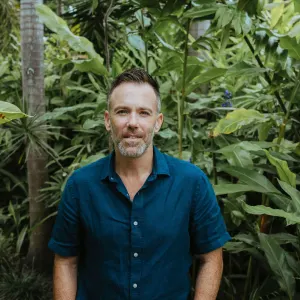
John
Psychotherapist

Tyson M
Accredited Exercise Physiologist
Accredited Exercise Physiologist (ESSA)

Cooper B
Registered Nurse and Guest Support
RN

Aaron W
Qualified Yoga & Pilates Practitioner/Certified NLP Therapist

Jasmine W
Naturopath
Qualified Naturopath

Amanda K
Head of Nutrition/GAPS Qualified Coach

Sam B
Private Chef
Certificate in Commercial Cookery

Kate B
Nature Therapy
Bachelor of Ecotourism and Yoga Teaching Qualification

Alessandra M
Certified Personal Trainer
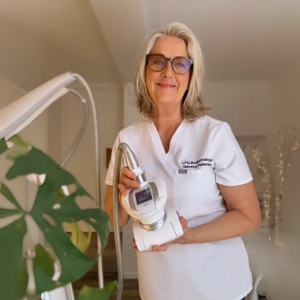
Gemma
Endermology & Lymphatic Therapy Specialist

Bec
Massage Therapist

Jordana
Registered Nurse

Scott F
Client Activities Liaison & Senior Guest Support
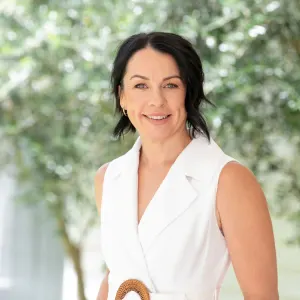
Tash
Guest Support/Meal Prep

Bill S
Guest Support

Luke D
Guest Support

Jemima
House Manager
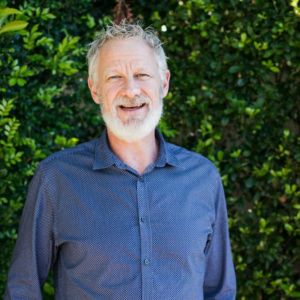
Peter L
Admissions Manager

Kristi P
Operations Manager
Bachelor's degree in Paramedic Science

Merli D
Administration


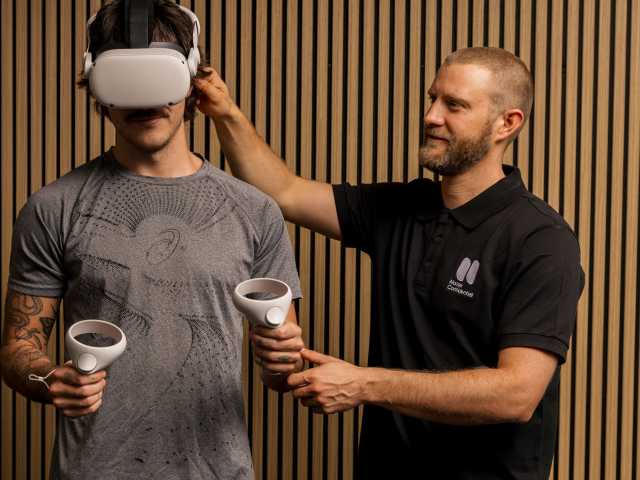

Levels of Care







Your Care Options
Specializations
Alcohol
Using alcohol as a coping mechanism, or drinking excessively throughout the week, signals an alcohol use disorder.
Detox
Detox fully and safely removes toxic substances from the body, allowing the next steps in treatment to begin with a clean slate.
Pet Friendly
For greater comfort and healing, pet-friendly treatment centers welcome dogs and animal companions to stay with their owners while they attend treatment.
Depression
Symptoms of depression may include fatigue, a sense of numbness, and loss of interest in activities. This condition can range from mild to severe.
Drug Addiction
Drug addiction is the excessive and repetitive use of substances, despite harmful consequences to a person's life, health, and relationships.
Eating Disorders
An eating disorder is a long-term pattern of unhealthy behavior relating to food. Most people with eating disorders have a distorted self-image.
Trauma
Some traumatic events are so disturbing that they cause long-term mental health problems. Those ongoing issues can also be referred to as "trauma."
Who We Treat
Adolescents
Teens receive the treatment they need for mental health disorders and addiction, with the added support of educational and vocational services.
Executives
Executive treatment programs typically directly support the needs of people who manage businesses and may provide flexible schedules and office space to allow work during treatment.
Young Adults
Emerging adults ages 18-25 receive treatment catered to the unique challenges of early adulthood, like college, risky behaviors, and vocational struggles.
Men and Women
Men and women attend treatment for addiction in a co-ed setting, going to therapy groups together to share experiences, struggles, and successes.
Professionals
Busy, high-ranking professionals get the personalized treatment they need with greater accommodations for work, privacy, and outside communication.
Approaches
Evidence-Based
A combination of scientifically rooted therapies and treatments make up evidence-based care, defined by their measured and proven results.
Medical
Medical addiction treatment uses approved medications to manage withdrawals and cravings, and to treat contributing mental health conditions.
One-to-One
Patients work with their treatment team members on a 1-on-1 basis, keeping their journey and treatment fully private and personalized.
Personalized Treatment
The specific needs, histories, and conditions of individual patients receive personalized, highly relevant care throughout their recovery journey.
Therapies
1-on-1 Counseling
Patient and therapist meet 1-on-1 to work through difficult emotions and behavioral challenges in a personal, private setting.
Meditation & Mindfulness
A practiced state of mind that brings patients to the present. It allows them to become fully aware of themselves, their feelings, and the present moment.
Adventure Therapy
This experiential approach uses the physical and emotional challenges of outdoor activities as tools for personal growth.
Animal Therapy
Animals can inspire trust and self-worth. In this experiential therapy, guided interactions are used to improve social skills and emotion regulation.
Aromatherapy
Inhaling or topically applying essential oils can help relieve stress, soothe pains, and relieve emotional distress.
Art Therapy
Visual art invites patients to examine the emotions within their work, focusing on the process of creativity and its gentle therapeutic power.
Biochemical Restoration
This treatment restores any brain and body deficiencies caused by substance abuse through a full detox, followed by supplement replenishment.
Canine Therapy
Friendly dogs provide a pleasant therapeutic experience, helping patients who've experienced trauma or separations build social and communication skills.
Conditions We Treat
Schizophrenia
Schizophrenia is a serious mental health condition that causes hallucinations, delusions, and disordered thinking.
ADHD, ADD
ADHD is a common mental health condition caused by dopamine imbalance. Common symptoms include inattention, hyperactivitiy, and impulsivity.
Anger
Although anger itself isn't a disorder, it can get out of hand. If this feeling interferes with your relationships and daily functioning, treatment can help.
Anxiety
Anxiety is a common mental health condition that can include excessive worry, panic attacks, physical tension, and increased blood pressure.
Bipolar
This mental health condition is characterized by extreme mood swings between depression, mania, and remission.
Burnout
Burnout entails mental and physical exhaustion, and leads to a severe lack of fulfillment. This condition is often caused by overwork.
Chronic Pain Management
Long-term physical pain can have an affect on mental health. Without support, it can also impact your daily life and even lead to addiction.
Codependency
Codependency is a pattern of emotional dependence and controlling behavior. It's most common among people with addicted loved ones.
Depression
Symptoms of depression may include fatigue, a sense of numbness, and loss of interest in activities. This condition can range from mild to severe.
Substances We Treat
Alcohol
Using alcohol as a coping mechanism, or drinking excessively throughout the week, signals an alcohol use disorder.
Benzodiazepines
Benzodiazepines are prescribed to treat anxiety and sleep issues. They are highly habit forming, and their abuse can cause mood changes and poor judgement.
Co-Occurring Disorders
A person with multiple mental health diagnoses, such as addiction and depression, has co-occurring disorders also called dual diagnosis.
Cocaine
Cocaine is a stimulant with euphoric effects. Agitation, muscle ticks, psychosis, and heart issues are common symptoms of cocaine abuse.
Drug Addiction
Drug addiction is the excessive and repetitive use of substances, despite harmful consequences to a person's life, health, and relationships.
Ecstasy
Ecstasy is a stimulant that causes intense euphoria and heightened awareness. Abuse of this drug can trigger depression, insomnia, and memory problems.
Heroin
Heroin is a highly addictive and illegal opioid. It can cause insomnia, collapsed veins, heart issues, and additional mental health issues.
Methamphetamine
Methamphetamine, or meth, increases energy, agitation, and paranoia. Long-term use can result in severe physical and mental health issues.
Languages
Aftercare
Care Designed for Your Needs
Personal Amenities
Amenities
Special Considerations
Center Pets
Addiction and mental health facilities with pets allow patients to interact with friendly dogs, cats, horses, and in some cases, even dolphins.
Clients can bring their own pet(s)
For greater comfort and healing, pet-friendly treatment centers welcome dogs and animal companions to stay with their owners while they attend treatment.
Couples program
Using gentle clinical care, therapists guide patients and their partner through guided sessions to address issues and work towards lasting solutions.
Pet Friendly
For greater comfort and healing, pet-friendly treatment centers welcome dogs and animal companions to stay with their owners while they attend treatment.
Executive Program
Addiction and mental health treatment for executives typically involves high discretion, greater technology access, and more private, 1-on-1 care.
Flexible technology policies
Centers with flexible technology policies allow professionals to stay in touch with work and give patients a greater sense of connection and normalcy.






